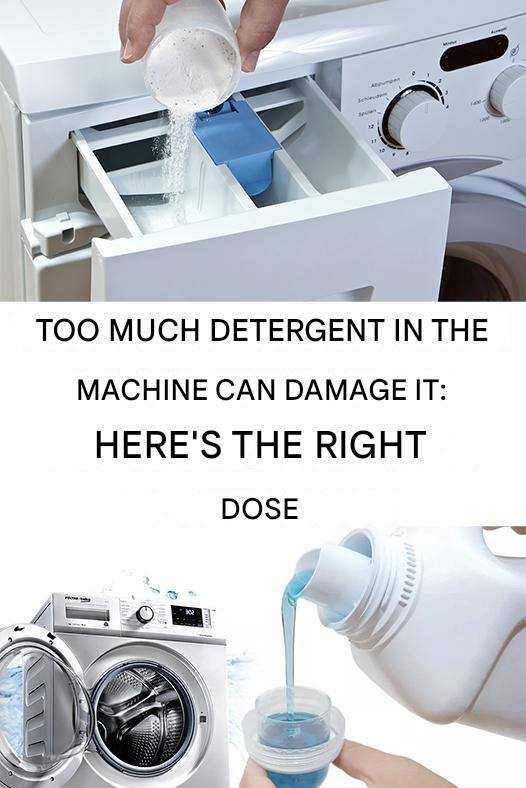ADVERTISEMENT
Too Much Detergent Can Wreck It: Here’s How Much You Need
Using too much detergent can make your clothes less clean and can harm your washing machine. Learn how to dose your detergent correctly for optimal results and a long-lasting machine.
Too Much Detergent, a Common Mistake
It’s tempting to think that more detergent means cleaner clothes. In reality, this idea is a myth. Using too much detergent often produces too many suds, which makes rinsing difficult and leaves residue on clothes. This residue then attracts dirt, making your clothes sticky or stiff after washing. Additionally, too much detergent can clog your machine, leading to unpleasant odors and premature wear.
Laura Johnson, R&D Analyst at LG Electronics, explains: “Using too much detergent can require more water to rinse, affecting the effectiveness of the wash and increasing the risk of residue inside the machine.”
Why Less Detergent Is Better
Modern washing machines, especially high-efficiency (HE) models, are designed to use less water and detergent. Unlike traditional machines, HE models work best with less detergent. Using too much detergent in an HE machine can leave suds on your clothes, even after multiple rinse cycles. It can also lead to residue buildup in the machine, creating musty odors or malfunctions.
Clorox Laundry Expert Mary Gagliardi says, “HE machine detergents are specially formulated to clean with fewer suds, which is key to avoiding residue on clothes and in the machine.”
ADVERTISEMENT
ADVERTISEMENT
How Much Detergent Should You Use?
The right amount of detergent depends on the type of detergent, your washing machine, and the hardness of your water. Here are some guidelines to help guide you:
Pre-measured pods: One pod is enough for a standard load, regardless of the type of machine.
Powder detergent: For a traditional machine, use about a quarter cup of powder. For HE machines, two tablespoons is enough.
Liquid detergent: In a standard machine, two tablespoons is recommended, while for an HE machine, two teaspoons is enough.
Adjust for water hardness: If your water is soft, reduce the amount of detergent to one teaspoon for an HE machine, or one tablespoon for a conventional machine.
Home care specialist Lydia Mammar advises: “Reducing the amount of detergent can not only extend the life of your clothes, but also preserve the efficiency of your washing machine.”
How do you know if you are using too much detergent?
There are several signs that you are using too much detergent:
Stiff or sticky clothes: Soap residue clings to the fibers, leaving an unpleasant texture.
Unpleasant odor: If your clothes or machine have a musty odor, it could be due to detergent buildup.
HE Machine Clogged: A lingering odor in the machine can be caused by excess suds in the drum and ducts.
Conversely, if your clothes come out of the machine with stains or lingering odors, you may not be using enough detergent. In this case, increase the amount slightly or try a pre-soak solution to remove stubborn dirt.
Conclusion
The correct amount of detergent is essential to ensure clean clothes and preserve your washing machine. More detergent does not mean a better wash, especially with modern high-efficiency machines. By adjusting the amount of detergent to your needs, you protect your clothes, save money, and extend the life of your machine.
ADVERTISEMENT
ADVERTISEMENT
